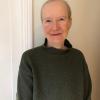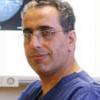The premise of the current programme is that screening for breast cancer before a lump is found will save lives. Furthermore, there has been a dramatic fall in deaths caused by breast cancer and specialist services for the diagnosis and treatment of breast cancer in the UK is the best in the world. So why does Professor Michael Baum say that we need to take a fresh look at our attitude to screening? In his expert article he states two key points:
1. Screening bias gives a false impression of the benefit of the NHS Breast Screening Programme
2. There is an over-detection of cancer “look-alikes” that, if left undetected, might never threaten a patient’s life
Prof Baum comments on the latest published papers that look at both the benefits and harms of screening. He notes that if 2,000 women are screened regularly for 10 years, one of these women will benefit from the screening, as she will avoid dying from breast cancer, although he goes on to point out that the correct number might be nearer to one woman in 3000, if you include improvements in treatment since the scheme began.
He states that this one woman's life is clearly worth saving although, the downside to this screening is the problem of over‐diagnosis of ‘pseudo‐cancers’. The Cochrane report found that for every breast cancer death avoided, ten healthy women will become cancer patients and be treated unnecessarily with treatments including the removal of the whole, or part of, their breast.
Prof Baum whose own family has suffered dreadfully from breast cancer says: “To carry on regardless is no longer acceptable, nor is political spin the answer. Women are now better informed and the demand for change comes from them as well. The NHS Breast Screening Programme has indirectly led to the provision of the best specialist services for the diagnosis and treatment of symptomatic breast cancer in the world, riding on the back of the screening units. The centralisation of care has led to a dramatic fall in breast cancer mortality in the UK over the last two decades. If we can now add to this the prevention of cardio-vascular disease and a risk adjusted screening programme for breast cancer then everyone is a winner.
Moving forward, he makes two practical propositions for research and development. One concerns “person preferences” and the other concerns the more efficient use of scarce resources that he refers to as risk assessment/risk management (RARM).








